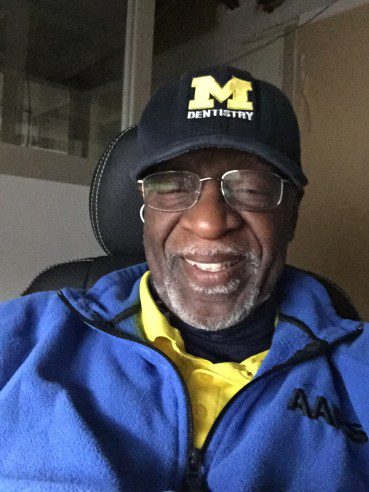Challenging Regulatory Racism: Dr. Norman Clement’s Campaign for Medical Freedom
In the modern era, where the quest for justice continues to evolve, Dr. Norman Clement emerges as a beacon of resistance against the systematic targeting of Black and Brown medical professionals. Much like Marcus Garvey, who championed the rights and empowerment of Black people in the early 20th century, Clement uses his platform, the “youarewithinthenorms” blog, to expose and combat what he terms as “regulatory racism” within the medical field.
The Modern Crusade
Dr. Norman Clement, a brilliant dentist and pharmacist, stands alongside a panel of esteemed colleagues, including Dr. Shiva Akula (Infectious Disease), Dr. Felix Brizuela (Neurologist), Dr. Dralves Edwards (Family Medicine/Sports Medicine), Dr. Lesly Pompy (Anesthesiologist, Pain Medicine, and Pain Addiction), and Dr. Walter Wrenn (Internal Medicine). Together, they have highlighted the troubling trend of criminalizing doctors of color, who are disproportionately targeted by the Drug Enforcement Agency (DEA) and the Department of Justice (DOJ) for activities that are standard practice in their field, such as prescribing medication and making Medicare claims.
Regulatory Racism
During a recent panel discussion shared with the Organization for Professional and Workplace Justice and Safety (OPWJS), data revealed a disturbing pattern: successful doctors of color, particularly those within a certain age range, are viewed as “dispensable.” Dr. Clement referred to these practices as “regulatory racism,” highlighting how these unjust actions not only devastate the careers of the affected doctors but also severely impact their communities. Each panelist has experienced negative encounters with federal authorities, ranging from DEA raids to serving federal prison time. These actions, Clement argues, are not isolated incidents but part of a broader strategy to undermine the professional success and contributions of Black and Brown doctors.
The Community Impact
The repercussions of these federal actions extend far beyond the targeted doctors. As Dr. Walter Wrenn poignantly noted, the removal of these physicians from practice places their patients in grave danger. “Seventy-five percent of the people who can no longer get their medicine, particularly pain medicines from their doctors who have been removed from practice by the government, are at risk of dying,” Dr. Wrenn explained. He further added that about 20% of these patients end up committing suicide, underscoring the dire consequences of this regulatory overreach.
A Legacy of Resistance
Dr. Norman Clement’s activism draws parallels to the legacy of Marcus Garvey, a Jamaican political activist and staunch advocate for Black empowerment and self-sufficiency. Garvey, who founded the Universal Negro Improvement Association and African Communities League (UNIA-ACL), was a visionary who sought to uplift Black people globally. In 1923 Garvey was convicted of mail fraud for selling his own company’s stock and he was imprisoned in the United States Penitentiary, Atlanta for nearly two years. Many historians have now argued that the trial was politically motivated. Despite facing imprisonment and eventual deportation, Garvey’s influence persisted, inspiring future generations to continue the fight for justice.
Similarly, Dr. Clement’s mission is to bring freedom to the practice of medicine, ensuring that doctors of color can serve their communities without fear of unwarranted persecution. Through his blog and public advocacy, Dr. Clement raises awareness about the discriminatory practices of the DEA and DOJ, calling for systemic change and accountability.
Dr. Norman Clement’s critique of the DEA is rooted in a detailed analysis of the agency’s practices and their impact on Black and Brown medical professionals. His arguments center around several key themes:
- Allegations of Systematic Targeting: Clement asserts that the DEA has a formal policy of systematically targeting U.S. pharmacists, particularly those who are Black and Brown. He argues that this targeting is part of a broader scheme that utilizes untested and unverified software algorithms to identify and classify pharmacists based on perceived red flags of drug abuse and diversion. Clement contends that these algorithms are highly prone to false positives, with reports indicating that between 70% and 90% of cases flagged by these algorithms are later judged to be false positives by experts.
- Legal and Constitutional Violations: Clement’s legal arguments include claims that the DEA’s practices violate the Equal Protection Clause of the Fourteenth Amendment. He argues that the enforcement of these red flag policies is arbitrary, irrational, and pretextual, amounting to a form of punishment for crimes that have not yet occurred. This, he claims, violates the substantive due process rights of the targeted pharmacists and their patients. Clement highlights that the DEA’s actions amount to collective punishment, where pharmacists and their patients are harassed and intimidated based on unproven allegations.
- Irreparable Harm and Sovereign Immunity: Clement also emphasizes the irreparable harm caused by the DEA’s actions. He points out that the loss of a DEA license and the ensuing damage to a pharmacist’s reputation and livelihood are significant and often beyond remediation. Due to the DEA’s sovereign immunity (now curtailed by the overturning of Chevron doctrine by the Supreme Court), affected individuals cannot seek monetary damages, making the harm “per se” irreparable. Clement argues that the relentless harassment and targeting based on red flags not only harm the pharmacists but also undermine their ability to provide effective care to their patients, which has broader implications for public health.
- Advocacy and the Need for Judicial Relief: Clement advocates for judicial relief to protect the rights of pharmacists and to ensure that the DEA’s actions are subjected to proper scrutiny. He calls for transparency in the DEA’s red flag program and argues for the need to intervene in legal actions to protect his interests and those of other pharmacists. Dr. Clement’s ongoing legal battles, such as his intervention involvement in the case against the DEA and U.S. Department of Health and Human Services in Neil Anand et al. v. U.S. Department of Health and Human Services et al. (Civil Action No. 21-1635), highlight his efforts to seek justice and reform in the face of what he perceives as systemic injustice.
Dr. Norman Clement’s critique of the DEA is rooted in a detailed analysis of the agency’s practices and their impact on Black and Brown medical professionals. His arguments draw on legal precedents, constitutional rights, and the broader implications of systemic targeting and harassment. Dr. Clement’s advocacy for judicial relief and transparency underscores his commitment to challenging what he sees as a deeply flawed system. The battle against the criminalization of Black and Brown doctors is a modern civil rights issue that demands urgent attention. Dr. Norman Clement, much like Marcus Garvey before him, is at the forefront of this fight, leveraging his platform to champion the rights of marginalized medical professionals. His work not only seeks to protect these doctors but also to safeguard the health and well-being of their patients. In doing so, Dr. Clement continues the legacy of resistance and empowerment, striving for a future where medicine is practiced freely and fairly, without the shadow of racial bias.
The Author received an honorable discharge from the U.S. Navy where he utilized regional anesthesia and pain management to treat soldiers injured in combat at Walter Reed Hospital. The Author is passionate about medical research and biotechnological innovation in the fields of 3D printing, tissue engineering and regenerative medicine.


Continue to be courageous and fight the fight! Thank you for your power and strenth. God bless🙏🏽
The Racist view of social structure is that the servile races must exist to serve the master races. Merit-based social structures have existed since the beginning of Humanity…the teacher of a skill is a community member who has mastered that skill. In Racism, no one earns recognition by achievement. Instead, each person inherits their social position by birth. Post-Lincoln America posed a grave challenge to theories of hereditary privilege, as numerous freed former slaves stopped envying their former rulers and began competing with them in free markets.
The only way the former ruling class and their offspring could preserve their delusions of superiority, was to punish Black people who attained success. In 1876 after stealing the election by terroristic threats, the KKK and its political wing, the Southern Democrats, enacted laws based on junk science. Allegedly Black Americans carried mystery diseases and to prevent their spread, Segregation laws were passed. Had the Segregation laws openly stated that their purpose was to get revenge on ex-slaves for thriving in freedom, those laws would have violated the Fourteenth Amendment. But by tying the junk philosophy of Racism to junk science about diseases both real and imaginary, laws were written that impeded access to the vote based on the Segregation principle. Southern Democrats controlled all-white voting and won most elections in the South, for lack of opposition.
The best deal LBJ offered to end Segregation was to offer the KKk a deal. Law officers, many of whom were KKK members, got “qualified immunity” from prosecution for past Racist acts, and the Voting Rights Act of 1965 was passed.
Since we never challenged the power of our elected officials to use junk science for political purposes, patients with pain have come under political attack. That racism-by-another-name must end if Liberty is again to be secure
I found this site thru Dr. Norm!